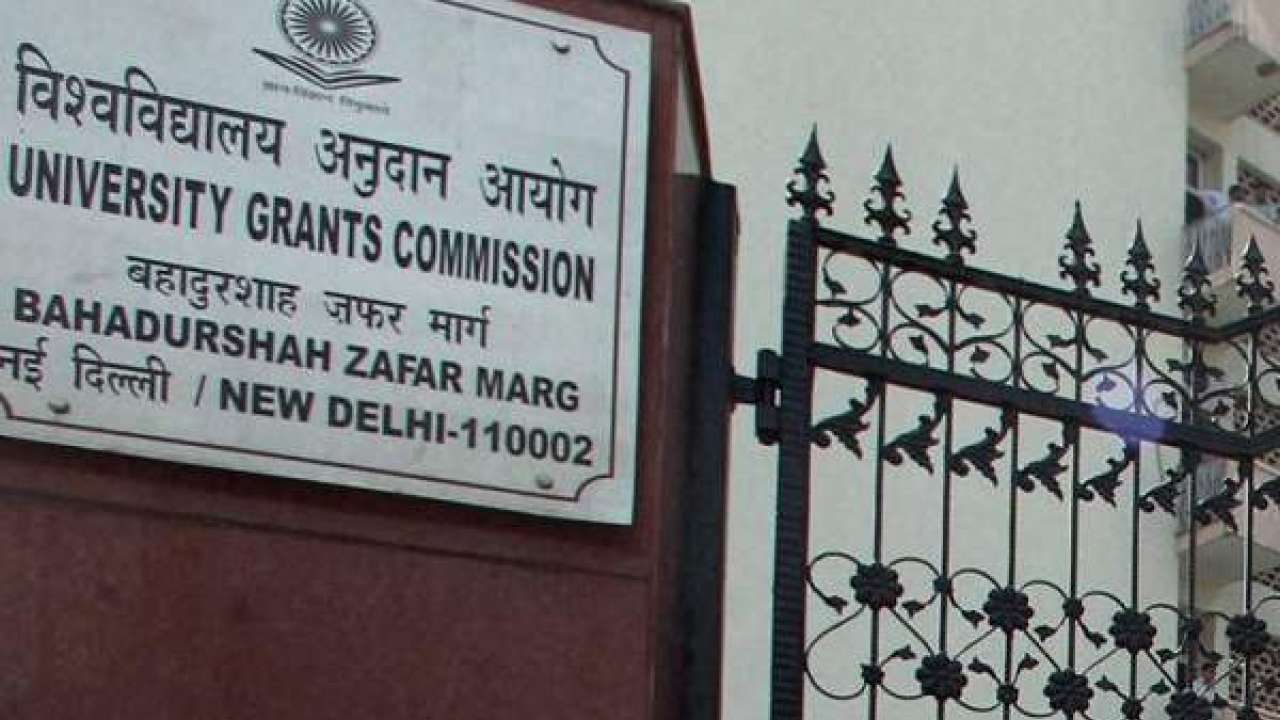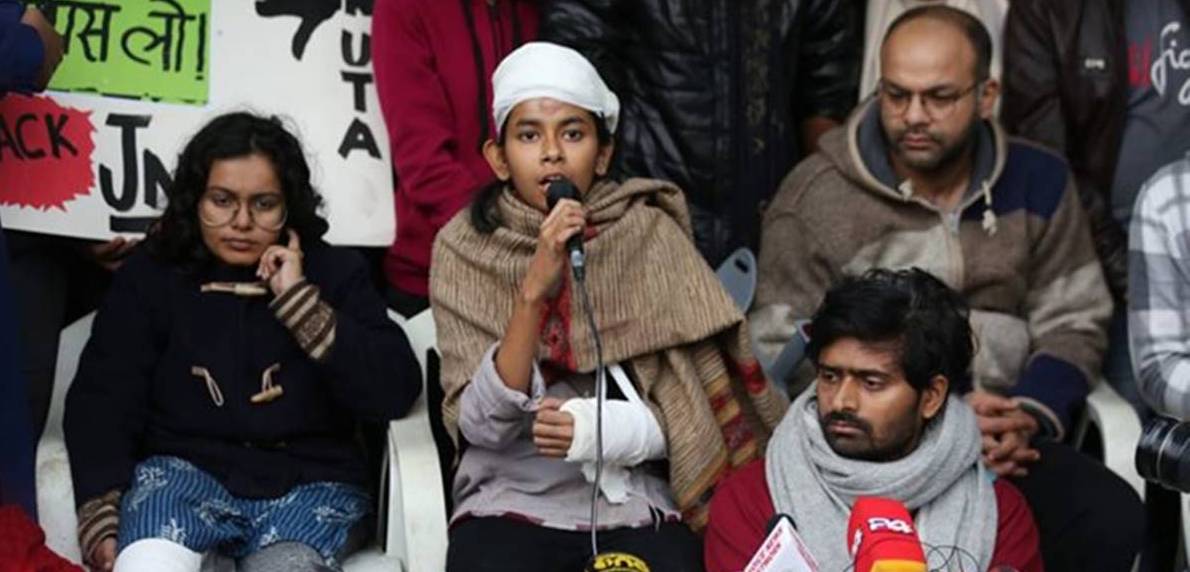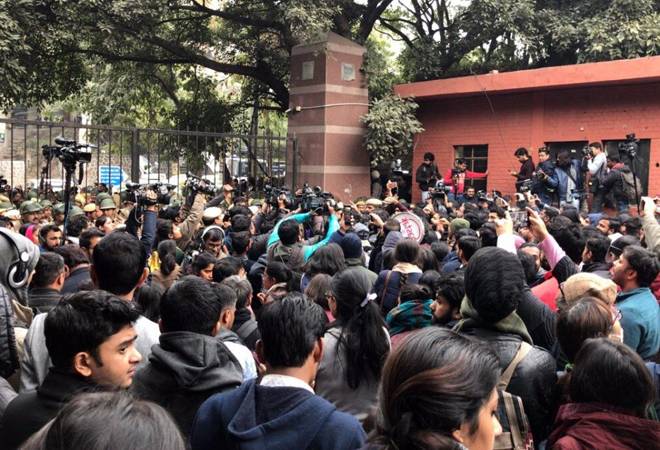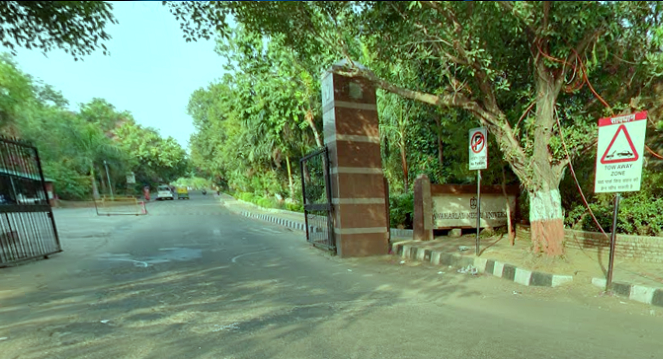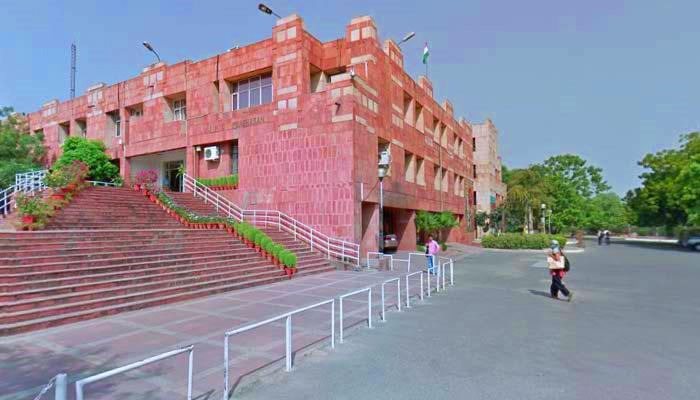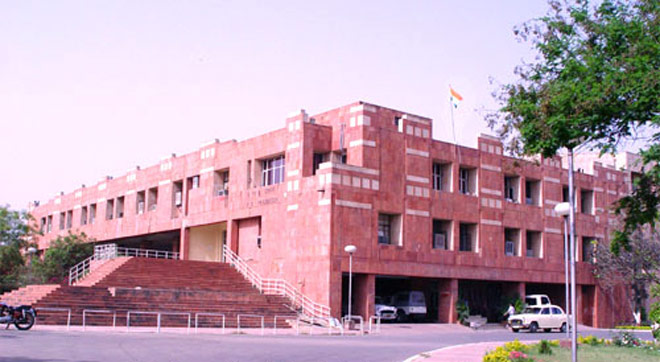
It would be absurd to pretend that things are fine at the Jawaharlal Nehru University; in fact, it is vulgar to think that as a JNU faculty, you can remain undisturbed, drive your car, come to the department, deliver a lecture, draw your salary, and lead your normal/comfortable middle class life. Yes, the administration thinks that the teachers are mere government employees, and hence they are not supposed to critique, protest, and fight for justice; it invents, invokes and interprets all sorts of ‘rules and regulations’ to discipline and punish those 48 teachers who, as the ‘competent authority’ feels, should be given a tough lesson for their ‘misconduct’. You have taught, served the university, nurtured students and researchers, and contributed to the growth of knowledge. Yet, you must be punished because you have participated in a peaceful march, and raised a series of issues relating to the proper functioning of the university. In this age of absurdity, virtue is vice; responsibility is misconduct; and peace is disturbance.
These teachers with conscience have protested, fought for justice, truth and academic freedom. And yes, the support is coming from all over the world. Yet, the irony is that a significant section of the JNU teaching community remains cold, indifferent and withdrawn, even though their colleagues are fighting a tough battle.
The brutality of indifference and silence
Ask any insider. And you would know that even though the JNUTA appeals to the teaching community to come forward, attend the meetings, and fight together, not more than 60-70 teachers come forward. Even at this crucial juncture, there is not much enthusiasm; the ice refuses to melt; the ears receive no echo; and even if the likes of Judith Butler and Gayatri Spivak show their solidarity, the ‘intimate world’ the world that we inhabit here and now – seems to be filled with indifferent strangers. What is really frightening is this utter apathy, or the complete silence on their part; they would not even ask you–if you are one of those who have been given a chargesheet – about your struggle, your politico-pedagogic-spiritual resource, and your state of consciousness. They have the eyes; yet, they would not see.
Well, we know how the ‘competent authority’ behaves. Never did we have much hope in politically appointed techno-managers determined to destroy the spirit of a liberal university. However, what has really shattered me most is the behaviour of a significant section of the JNU teaching community. It is sad to see the way the administration with its typical ‘divide and rule’ policy has succeeded in destroying the backbone of these teachers. They gave up so quickly and promptly. The administration must have experienced the sadistic pleasure when they saw these teachers accepting everything without even articulating their academic viewpoints on a series of critical issues – the MCQ pattern of entrance test, all sorts of circulars and arbitrary rules, appointment of Deans and other officials without following any convention or institutionalized norm, the one-dimensional Academic Council or Board of Studies meetings, and open humiliation of those who dare to dissent.
The ‘competent authority’ is here. But what can anyone do when with absolute silence we are ready to kill ourselves?
You need not be a ‘leftist’ to raise your voice
Why is this collective indifference, this coldness, this escape? Why is it that all the fancy words of radicalism – Ambedkarism, Marxism, postmodernism–that some of these indifferent teachers love to be associated with have lost their meanings? I keep thinking and wondering. And I find three reasons to explain it.
First, I feel that these teachers, despite all the ‘radical’ papers they publish in international journals, are not free from the mass psychology of fear that seems to have become infectious in our times. In this age of conformity (or, the dictum: ‘there is no alternative’), if you protest, speak a different language, overcome your silence, you enter a ‘risky’ domain. And the comfort-seeking middle class loathes anything that involves ‘risks’. Right career, right apartment, right car, secure job, comfortable radicalism, financial stability–life is confined to this logic of ‘practicality’. Hence, they might justify their silence or indifference as smartness, a clever act, a proper strategy. You cannot say that you are fearful; it hurts your ego. You are educated. You have the language to justify whatever you do. Hence, with this smartness, they continue to lead their normal lives – department, faculty meeting, seminar, high tea…
Second, I think that it is almost taken for granted that these are not the times for politico-ethical protest; and here is a system that would not listen to you, no matter how much you protest. Hence, the only option is the legal battle; let everything be decided in the court room–whether you are eligible for duty leave for attending a seminar, whether your interview for career advancement should be conducted immediately, or whether the biometric should be introduced for monitoring the teachers. Wait for the next hearing, the interim order, the judgment. And meanwhile, let everything remain normal! None would deny the great significance of the legal battle, particularly when the administration is callous, vindictive and inefficient (think of the online mess, the chaos in the Academic Evaluation section, or the ever- changing rules relating to the process of re-registration). However, without moral strength and activated energy, no fundamental change is possible. In the name of the ‘legal battle’, you and I cannot repress our critical voices. If we do so, it is pure escapism. Acknowledge it.
And third, some of them, I guess, are not comfortable with the ‘leftists’–the language they speak, the ‘cultural capital’ that distinguishes them, or the ideologies they adhere to. They may even think that the ‘leftists’ always cause all sorts of problems, and they are not allowing the ‘competent authority’ to serve the university. This argument, I think, is absurd. The university belongs to all of us; it is not the monopoly of the ‘leftists’; and hence if things are not good at the university, it affects all of us, and, therefore, no matter whether we are inclined to Marx or Ambedkar, Gandhi or Nehru, and Vivekananda or Deendayal Upadhyaya, we should protest, irrespective of our political beliefs. If the university dies, even the ‘non-leftists’ would not survive.
I am not a ‘leftist’; nor am I a ‘rightist’. I am not even actively ‘political’. I am a simple teacher in affinity with the idea of a university as a democratic/dialogic space conducive to the growth of multiple voices and epistemological pluralism. I cherish the idea of a university that values the autonomy and self-respect of teachers, and a symmetrical relationship between the teacher and the taught. The fact is that the ‘competent authority’ is destroying this very idea of a university. Believe it, you need not be a ‘leftist’ in order to resist this administration; just trust and respect your vocation–its purpose and dignity, and you are bound to say that the JNU administration is degrading and humiliating you everyday.
I often say that even if you wish to write a path-breaking book on Savarkar, this administration would not allow you to do so. Because for a good research–even if it is on Savarkar or Golwalkar – you need an environment of debate and dialogue, a sense of freedom and autonomy, a good library, and a creative space free from bureaucratic interference and threatening circulars. You need a relaxed/peaceful mind. How is it possible when the administration generates a toxic environment filled with doubt, suspicion, fear and broken communication? No, even if the ‘competent authority’ gives you a ‘position’ in the Pink Building, you have already been degraded. You have lost the spirit of being a teacher; you have allowed yourself to be used and utilized by the dubious administration.
You seek to become clever; but you are already dead
There is no ‘winner’ in this game. Even these ‘officials’ with ‘lucrative positions’ know that, despite the temporal power, they have already been defeated. You lose your agency and conscience, and exist as a mere puppet–always unsure of yourself- surrounded by ‘security guards’. A teacher should be surrounded by students, not security guards. A teacher should be seen in the library, in the street, in the cafeteria–not in a castle. And those who live with fear, choose not to utter a single word, and remain ‘safe’ have already lost it. They have ceased to be teachers.
Well, you may think that you are ‘lucky’, and you need not hire a lawyer to fight a case; you need not lose your job ; you might get the leave you have applied for easily; and life is ‘settled’ for you. But then, you have already lost your dignity, your pride as a teacher. You have become merely a passive/loyal/disciplined/ government employee. How would you come to the class, and teach Marx, Gandhi, and Ambedkar? How would you fulfill the swadharma of a teacher as a thinker who encourages the young learners to question, wonder, reflect, and see the world from a perspective that need not always coincide with the ‘official’ line? There are moments when you would not feel like looking at the mirror, and confront yourself. You are already dead and defeated.
Do we die everyday with fear and humiliation? Or do we live intensely, look at the ‘competent authority’ with penetrating eyes and fearlessness, and sing the finest song of a non-violent art of resistance: Truth is truth, even if the brute power desires to evade it.
As JNU teachers, we have to decide how you choose to live at this crucial moment of history.

